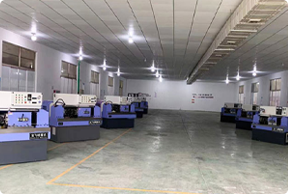
-
 Afrikaans
Afrikaans -
 Albanian
Albanian -
 Amharic
Amharic -
 Arabic
Arabic -
 Armenian
Armenian -
 Azerbaijani
Azerbaijani -
 Basque
Basque -
 Belarusian
Belarusian -
 Bengali
Bengali -
 Bosnian
Bosnian -
 Bulgarian
Bulgarian -
 Catalan
Catalan -
 Cebuano
Cebuano -
 Corsican
Corsican -
 Croatian
Croatian -
 Czech
Czech -
 Danish
Danish -
 Dutch
Dutch -
 English
English -
 Esperanto
Esperanto -
 Estonian
Estonian -
 Finnish
Finnish -
 French
French -
 Frisian
Frisian -
 Galician
Galician -
 Georgian
Georgian -
 German
German -
 Greek
Greek -
 Gujarati
Gujarati -
 Haitian Creole
Haitian Creole -
 hausa
hausa -
 hawaiian
hawaiian -
 Hebrew
Hebrew -
 Hindi
Hindi -
 Miao
Miao -
 Hungarian
Hungarian -
 Icelandic
Icelandic -
 igbo
igbo -
 Indonesian
Indonesian -
 irish
irish -
 Italian
Italian -
 Japanese
Japanese -
 Javanese
Javanese -
 Kannada
Kannada -
 kazakh
kazakh -
 Khmer
Khmer -
 Rwandese
Rwandese -
 Korean
Korean -
 Kurdish
Kurdish -
 Kyrgyz
Kyrgyz -
 Lao
Lao -
 Latin
Latin -
 Latvian
Latvian -
 Lithuanian
Lithuanian -
 Luxembourgish
Luxembourgish -
 Macedonian
Macedonian -
 Malgashi
Malgashi -
 Malay
Malay -
 Malayalam
Malayalam -
 Maltese
Maltese -
 Maori
Maori -
 Marathi
Marathi -
 Mongolian
Mongolian -
 Myanmar
Myanmar -
 Nepali
Nepali -
 Norwegian
Norwegian -
 Norwegian
Norwegian -
 Occitan
Occitan -
 Pashto
Pashto -
 Persian
Persian -
 Polish
Polish -
 Portuguese
Portuguese -
 Punjabi
Punjabi -
 Romanian
Romanian -
 Russian
Russian -
 Samoan
Samoan -
 Scottish Gaelic
Scottish Gaelic -
 Serbian
Serbian -
 Sesotho
Sesotho -
 Shona
Shona -
 Sindhi
Sindhi -
 Sinhala
Sinhala -
 Slovak
Slovak -
 Slovenian
Slovenian -
 Somali
Somali -
 Spanish
Spanish -
 Sundanese
Sundanese -
 Swahili
Swahili -
 Swedish
Swedish -
 Tagalog
Tagalog -
 Tajik
Tajik -
 Tamil
Tamil -
 Tatar
Tatar -
 Telugu
Telugu -
 Thai
Thai -
 Turkish
Turkish -
 Turkmen
Turkmen -
 Ukrainian
Ukrainian -
 Urdu
Urdu -
 Uighur
Uighur -
 Uzbek
Uzbek -
 Vietnamese
Vietnamese -
 Welsh
Welsh -
 Bantu
Bantu -
 Yiddish
Yiddish -
 Yoruba
Yoruba -
 Zulu
Zulu
Innovative Thread Rolling Tools for Enhanced Efficiency and Precision in Manufacturing
The Importance of Thread Rolling Tools in Manufacturing
In the realm of manufacturing and metalworking, thread rolling tools have established themselves as essential components in the production of threaded fasteners and various metal parts. These tools facilitate the creation of durable and precise threads on a range of materials, and their significance cannot be overstated. This article delves into the characteristics, benefits, and applications of thread rolling tools, emphasizing their pivotal role in modern manufacturing processes.
Understanding Thread Rolling
Thread rolling is a cold-forming process that generates threads by deforming the material using specially designed dies. Unlike traditional machining methods, which remove material to create threads, thread rolling displaces the material, resulting in threads that possess superior strength and surface finish. This method is particularly efficient for producing large volumes of fasteners and similar components, making it a preferred manufacturing technique in various industries.
Key Features of Thread Rolling Tools
Thread rolling tools, which include cylindrical dies and flat dies, are designed to accommodate various thread sizes, profiles, and materials. The tools are engineered from high-quality materials, often including high-speed steel or carbide, which ensure durability and longevity. The precision with which these tools are manufactured allows for consistent thread dimensions and reduces the likelihood of defects, which is crucial in high-volume production settings.
Another significant feature of thread rolling tools is their adaptability. They can be customized to produce different thread types, including Unified, Metric, and Acme threads, among others. This versatility enables manufacturers to cater to specific client requirements and ensure compatibility with various assembly systems.
Advantages of Using Thread Rolling Tools
1. Enhanced Strength The cold-working nature of the thread rolling process strengthens the material's grain structure, resulting in threads that exhibit greater tensile strength and fatigue resistance compared to those produced through cutting methods.
famous thread rolling tool

3. Material Efficiency Since thread rolling does not involve significant material removal, it maximizes the use of raw materials, resulting in less waste and more economical production processes.
4. High Production Rates Thread rolling tools can significantly increase manufacturing efficiency. They can produce threads at a rapid pace, making them ideal for high-volume applications.
5. Uniformity and Precision The rigid die setup ensures high-precision thread dimensions, allowing for consistent quality across parts. This uniformity is vital in ensuring that fasteners fit correctly in their respective applications.
Applications in Various Industries
Thread rolling tools are utilized across a range of industries, including automotive, aerospace, electronics, and construction. In the automotive sector, they are commonly used to produce bolts and screws that must withstand considerable stress and vibration. The aerospace industry relies on thread rolling to manufacture lightweight yet strong components critical to aircraft safety and performance.
In electronics, thread rolling tools help produce connectors and fasteners that require precise threading for secure connections. The construction industry also benefits from these tools in the manufacturing of structural components, ensuring that high-strength fasteners are readily available for various applications.
Conclusion
In summary, thread rolling tools are a cornerstone of efficient and effective manufacturing in modern industries. Their ability to produce high-strength, high-quality threaded components with minimal material waste and enhanced uniformity positions them as indispensable assets in numerous production environments. As industries continue to evolve and demand higher performance standards, the role of thread rolling tools will only become more significant, driving innovation and efficiency in manufacturing processes for years to come.
